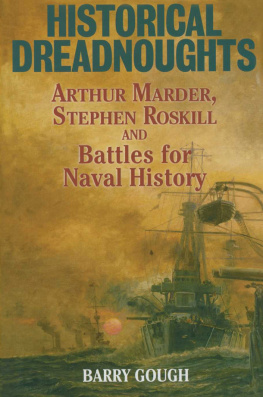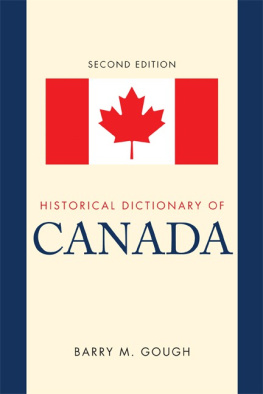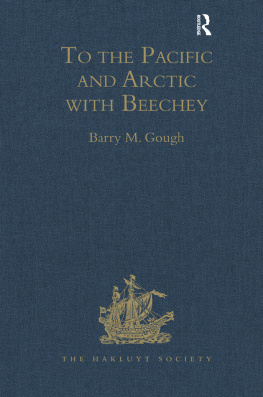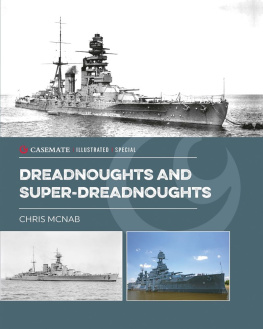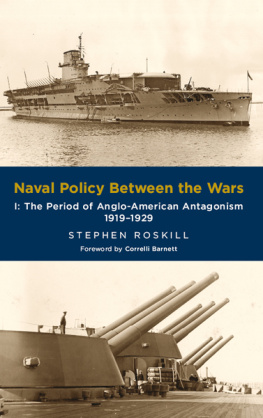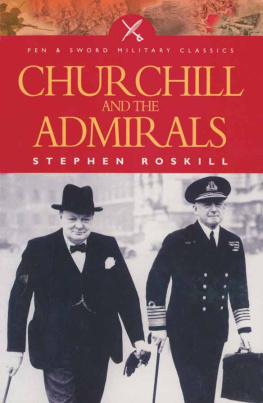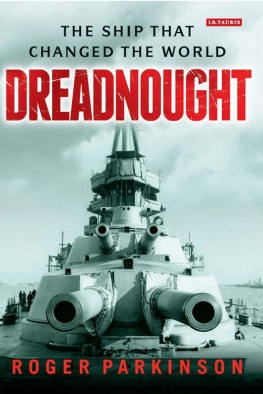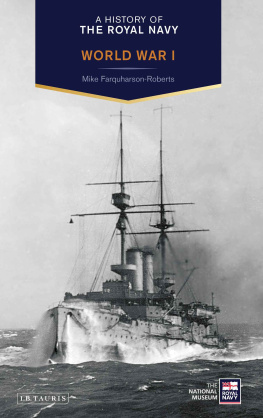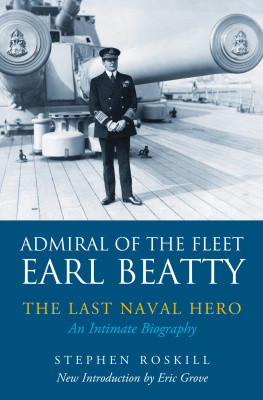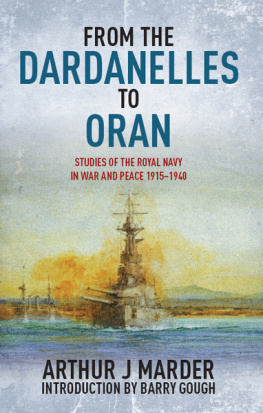HISTORICAL DREADNOUGHTS
HISTORICAL
DREADNOUGHTS
Arthur Marder, Stephen Roskill and
Battles for Naval History
Barry Gough

Copyright Barry Gough 2010
First published in Great Britain in 2010 by
Seaforth Publishing,
Pen & Sword Books Ltd,
47 Church Street
Barnsley S70 2AS
www.seaforthpublishing.com
British Library Cataloguing in Publication Data
A catalogue record for this book is available from the British Library
ISBN 978 1 84832 077 2
All rights reserved. No part of this publication may be reproduced or transmitted in any form
or by any means, electronic or mechanical, including photocopying, recording,
or any information storage and retrieval system, without prior permission in writing
of both the copyright owner and the above publisher.
The right of Barry Gough to be identified as the author of this work has been asserted
by him in accordance with the Copyright, Designs and Patents Act 1988.
Designed and typeset by M.A.T.S., Leigh-on-Sea, Essex
Printed and bound in Great Britain by CPI Antony Rowe, Great Britain
Also by the same author
The Royal Navy and the Northwest Coast
To the Pacific and Arctic with Beechey
The Northwest Coast: British Navigation, Trade and Discoveries
Gunboat Frontier
HMCS HAIDA: Battle Ensign Flying
Fighting Sail on Lake Huron and Georgian Bay
Fortunes a River: Collision of Empires in Northwest America
(between pages 206 and 207)
1. Marders influences
2. Go to the sources
3. When naval history made news
4. Success opens doors
5. The young naval officer
6. Naval command
7. Controversial admirals, controversial books
8. Academic honours
The English admirals are not those who built up the power of their country. If England has had Rodney, Hawke and Nelson, we have had Duquesne, Tourville and Suffren. It is that impersonal being that is called the English Admiralty; it is that which has prepared all the elements of British greatness; it is that which has known how to create homogeneous fleets, to arm them, equip them, enlist crews for them (God knows at the price of what sacrifices), and to place at their head the most capable men. Its severity has often been excessive; but, with admirals for its support.
Commander Ren Davelny,
The Genius of Naval Warfare (1909).
I N the course of modern history, Britains Royal Navy has been a powerful instrument with an illustrious reputation. As an arbiter in world affairs, a guardian of seaborne trade, and a shield for the British Isles and the British Empire, the Navy the Senior Service of Britains Armed Forces played a prominent role in the history of the world from the sixteenth century on, from the years of Queen Elizabeth I to the present. However, in the seven decades beginning with 1880, it faced its severest trials and tribulations. Britains paramount position was then beset by forces largely beyond the control of the nation and empire. New foreign rivals appeared on the world stage with aggressive intent. Two great wars were to prove the supreme test of the fleet and the nation.
Two remarkable historians of great stature took up the task of writing the history of the Royal Navy in these turbulent and trying years. They did so at a time when few if any serious historical studies had been undertaken of the modern Navy. This book is their story.
The present work began as one thing a biography of Professor Arthur Marder and ended up as something quite different, both in scope and in design: a sort of double life, as it were, of Marder and of his famous sparring partner, Captain Stephen Roskill, Royal Navy. As the course of my research made clear, Marder and Roskill were then, as they are now here in the telling and retelling, as different in personality and character as could be imagined. Beyond this, their abiding quest for pre-eminence in the field, and the grave animosity that developed between them following an initial quarrel over the use of the diaries of the man of secrets, Lord Hankey made for a historians battle the like of which has seldom been seen and recorded (the battle between Sir Geoffrey Elton and J.H. Hexter, likewise acknowledged experts on Tudor English history, and that between Hugh Trevor-Roper and A.J.P. Taylor are two that come to mind). Marder without Roskill, or perhaps the opposite, would have been like Hamlet without the Ghost.
Marder and Roskill died within two years of one another. The first was from academia, the other from the Service. One was American, the other English. The former, first in the field, was abundantly successful in the historical profession and academic life before the other entered the lists. Of the two, Marder was the more analytical and Roskill was the more strategic in thinking. Marder was pointillist in style, layering on well-sorted evidence and building up his case; Roskill was magisterial but had a slight tendency to get off track. Doubtless the personality, character, disposition, and health of a historian shape his ability to write on a subject. In Marder and Roskill, their unique characteristics profoundly affected their work. Each in his own way made substantial contributions to the annals of history. We are the better for the rich tapestry to which they both contributed magnificent strands.
In the end, Roskill, who was in effect an official historian and an exemplary practitioner in that branch of historical inquiry, found hard to bear the encroachments, both persistent and unrelenting, of his celebrated precursor. As correspondence between them and interviews with those who knew either of them (or even both) now makes clear, a great, swelling drama was being acted out between them. Roskill engaged a large supporting cast. Marder refused to counter with such an act. This dialectic, aspects of which appeared most notably in the Times Literary Supplement, can now be revealed more fully from materials in their private papers, which make evident that their public spat remembered to this day by naval historians and others had deep, private dimensions.
At the time, some observers bemoaned the disputatious nature of the quarrel, and some have thought that history would have been better served if the two had patched up their differences. But nothing could be done to change the direction that they took, so strong-willed was each of the players. The record also shows the paucity of the argument that, had they not had this quarrel, there would have been a better sharing of historical materials. Almost to the end, the pair responded to each others needs for evidence and exchanged documents on loan. A public war did not prohibit scholarly exchange. The fight may appear unseemly, but, in fact, it had important historical legacies: it obliged each of the contenders to do further research to find, present and demonstrate documentary support for his arguments.
From the outset, I have worked diligently to maintain an impartial view. We need, I contend, more great historians such as Marder and Roskill, to say nothing of audiences willing to read good history. Had these two persons never met and quarrelled, their legacies would be profound and enduring in any event. Their vast and vital corpus of work, detailed in the Bibliography at the end of this book, adds spice as well as true historical and personal interest to an unusual episode in the history of the modern world and of the Royal Navy in particular. Biographies of historians can make for compelling reading, as John Clives
Next page
